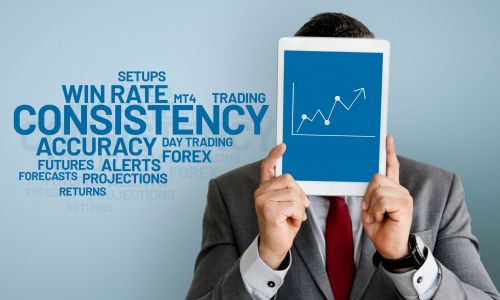We’re here to burst the bubble. If you’re thinking about becoming a full-time trader – don’t. Instead, take a step back and think about why you want to trade full time, which is probably a personal (or psychological) question anyway. Even if you make money, which most don’t, trading won’t save all your problems.
To help save would-be traders from themselves, we’ve put together this list of a few thought-starters to help you think twice – and maybe a few dozen times more after that – about going full-time.
Can I Be A Full Time Trader?
Don’t just trade. Be a trader.
Even if you plan to keep a full-time job and trade around it, you have to change your mindset from casual to professional. Trading casually on a whim means you’re following impulses, not strategy. You’re doing what’s convenient, not against the grain. And you’re bound to make mistakes. Trading consistently trains your mind to spot patterns, learn lessons and adapt, helping you take that step from amateur to pro.
Keep a Schedule
Part of the thrill of trading is being able to work on the fly when you feel like it. You can trade for a few hours here and there instead of being tied to a desk all day. But in reality, trading isn’t an amateur’s game. Spotting patterns means paying attention often enough to know what’s always going on. Setting a schedule and trading at the same time every day – most traders would recommend 2–3 hours at market open – is your best bet.
Manage Your Time
As any professional investor will tell you, there’s no small amount of research and planning that goes into any well-executed trade. So, if you’re going to make smart plays, you can’t take shortcuts: part-time trading takes just as much research as full-time trading. If you plan to only trade for 2 hours a day, think about how much time you’ll be spending beyond that reading, analyzing results and planning. Your hourly rate may not look so good after all.
Own Your Business
You may have a trading strategy, but do you have a business plan? If you’re going to depend on trading for any portion of your income, you can’t look at it in isolation. Take a hard look at your personal expenses, savings, overhead costs, time commitments and other factors that could interfere with your trading. Plan for profits and losses. Plan for growth and stagnation. Plan for wi-fi outages, medical emergencies and personal time off. When you plan to make trading a big part of your life, it can easily take a bigger piece than you’d ever expect.
Scared Money Never Wins
It’s impossible to overstate the psychological difference between trading casually and professionally. If you depend on trading for your income, you depend on it for everything income provides you: stability, freedom, entertainment, even a place to live. While this may seem like an incentive to trade smarter, it quickly becomes a distraction. If you’re unable to make smart, calculated risks, the temptation of dumb “risk-free” trades will always be there – along with someone who isn’t scared to lose.
Manage Risk or Be a Slave to It
Margin calls. Over-leveraging. Bubbles. Flash crashes. Systemic risk. Endemic risk. Volatility. There are too many everyday risks to list, and many more that can’t be predicted or accounted for. Many well-meaning financial experts will trot out basic principles like these:
- Never put more than 5% of your capital into a single trade
- Set an exit point (and/or stop loss) before each trade
- Be prepared for 10–20% losses
- Have 12 months of expenses saved up
But the fact is, no one can predict the future, not even the experts. The best traders know that even “low-risk” ideas still have risk. The best hope for any trader, casual, part-time or full-time, is to have 1) a strategy and 2) the discipline to rigorously test and refine that strategy. Things will go wrong. Your strategy will be disproven eventually. It’s up to you to know how to react.
Whether you’re a pro, amateur, full-time or part-time trader, it helps to have a time-tested strategy to make your trading more systematic and less emotional. Enter fractalerts. 2–4 times a month, our customized alerts give you advance notice of a trade we’re making in one of 39 markets from indices to commodities to forex. To get started, tell us a bit about what you trade on our Get Started.
-

Consistency Isn’t the Goal—It’s the Outcome
-

What 2 Quadrillion Data Points Told Us
-

Math and Physics-Based Trading in Any Market Condition
-

Do not worry about anomalies
-

Consistency should not be the goal. Consistency should be the result.
-

Stop canceling fridays
-

The Elliott Wave Forecast is Subjective, Bias Driven And Backwards looking
-

Finding patterns in market data
-

Taking profits through the trade timeline
-

What is your win ratio and you really want to know?

